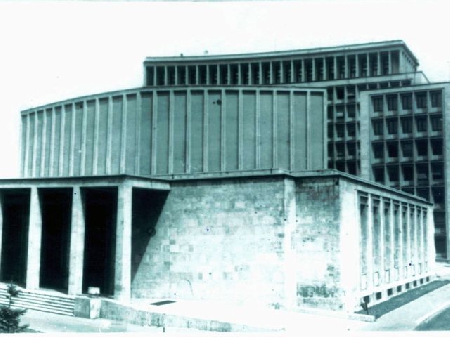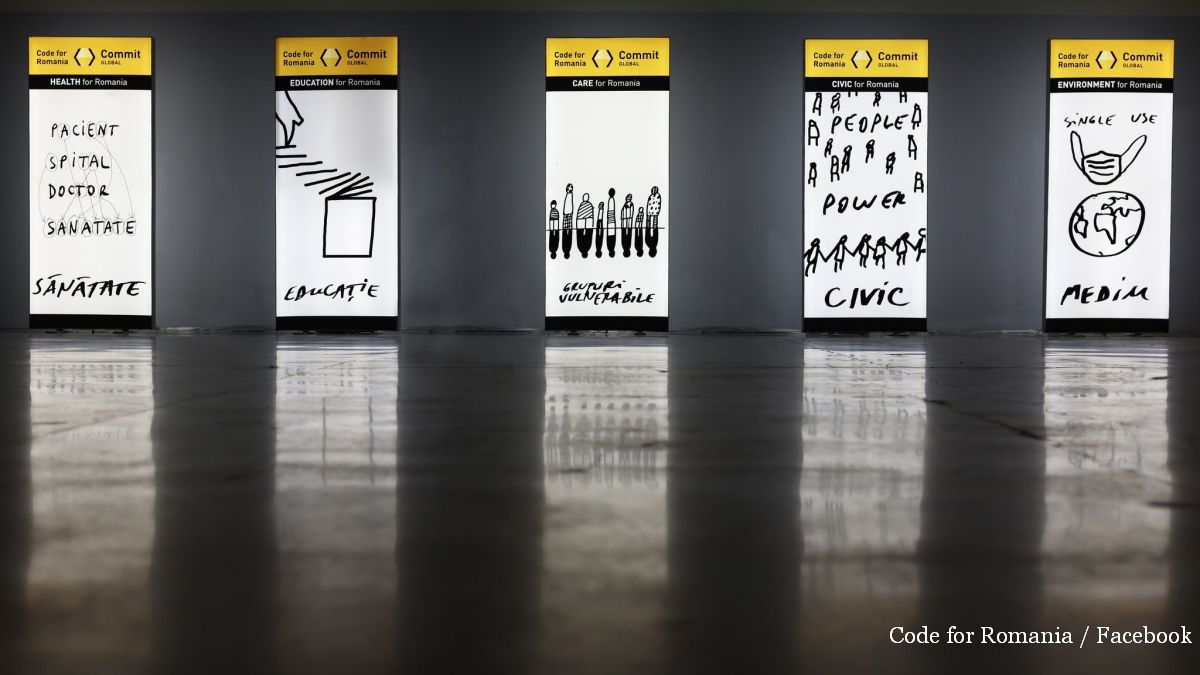Radio Romania’s 85th anniversary
The Romanian Radio Broadcasting Corporation aired its first signal on 1 November 1928.

Steliu Lambru, 01.11.2013, 13:12
The Romanian Radio Broadcasting Corporation aired its first signal on 1 November 1928, which makes it one of the few institutions in Romania to boast such uninterrupted activity. A means of mass communication and information between 1929 and 1938, the most democratic decade in the country’s recent history, public radio was used, between 1938 and 1989, as a tool of propaganda for the authoritarian and totalitarian regimes, first the fascist and soon after the communist regimes. The historian Eugen Denize is the author of the most comprehensive study on the history of the Romanian Radio Broadcasting Corporation. Upon the completion of his 4-volume study in 2004, he told us that his research lasted from 1996 until 2001:
Eugen Denize: “Seeing the wealth of documents in the corporation’s archives, we realised the book had to be several volumes long, so as to be able to cover as much as possible of the history of this institution, which is an important phenomenon in our contemporary society. Our research only goes up to 1989, because otherwise we could have risked departing from historical research and capturing instead snapshots of the corporation’s present life. In short, the first volume covers the first ten years, from 1928 to 1938. In 1939, Romania saw the installation of a totalitarian regime, which meant that public radio had to function in an altered environment. Until 1989, it was under extraordinary political pressure, but I think it managed to maintain its balance and fulfil its basic functions. The second volume deals with the period of right-wing dictatorships, namely the royal dictatorship of King Carol I, the Legionnaire dictatorship and the dictatorship of Marshall Antonescu. This second volume ends on 23rd August 1944, when Romania joined the Allied Forces. The third volume covers the communisation of Romania and the leadership of Gheorghe Gheorghiu Dej until his death in 1965. The last volume deals with the Nicolae Ceausescu regime, from 1965 to 1989, including the period of relaxation after 1964 and the again restrictive policies of 1971-1974. All four books are based exclusively on the documents and materials found in Radio Romania’s print and sound archives and are thus an absolute novelty in the field of historiography studies.”
Apart from information, the public radio has always fulfilled, ever since its early days, an educational and cultural role, not to mention entertainment. Eugen Denize explains:
Eugen Denize: “From the very beginning, even before the creation of the Radio Broadcasting Corporation, the pioneers of radio broadcasting clearly established the functions of radio, and these will remain the same. First of all, we are talking about a very important cultural function. Radio broadcasting has contributed to the development of culture itself and has disseminated culture among its listeners. Then there is also a national function, in the sense that radio has played a major role in promoting and protecting the national values. We should also mention the educational function. More precisely, many of its early programmes focused on teaching and giving advice, in fields as diverse as we can imagine, from animal husbandry to health and hygiene, from growing plants to educating children. A lot of shows target specific audiences: children, students, the military, peasants and so on. The public radio has always had an educational mission, which it has successfully fulfilled in most cases. We all remember the famous programmes aired under the heading ‘The Radio University,’ which brought together leading names of Romanian culture: the historian Nicolae Iorga, sociologist Mihai Ralea, literary critic Tudor Vianu, writers Mihail Sadoveanu and Tudor Arghezi, and many others. Essentially, Romania’s most prominent intellectuals spoke on the Radio. Apart from these functions, the public radio also entertained people. Before the advent of television, radio was the main source of entertainment that people had available.”
Eugen Denize was pessimistic as regards the future of Romanian radio broadcasting. A history covering the period from 1989 to this day is harder to write, because of the large volume of information and the elimination of censorship since 1989:
Eugen Denize: “The 1989 anti-communist revolution brought about a major change for all Romanians, but perhaps even more so for radio broadcasting. Until 1989, radio broadcasting had been a state monopoly, even in the democratic period of 1928-1938. In 1989, this monopoly ended and frequencies started to be available for sale. Competition was thus born, and it became ever tougher. This is a significant challenge for the public radio. I believe its journalists have the resources to cope with this challenge. Look at what happened in other European countries, like Italy and the UK, where the mission of public radio and television has not decreased, but on the contrary, it has strengthened. The main advantage for the public radio station, in its competition with the large number of private stations, has to do precisely with its outstanding tradition.”
Radio Romania has an 85-year long tradition, and it is a media institution that has proven the quality and impartiality of its products. It is an essential asset for all democratic societies, and one that Romania has regained in 1989.





























